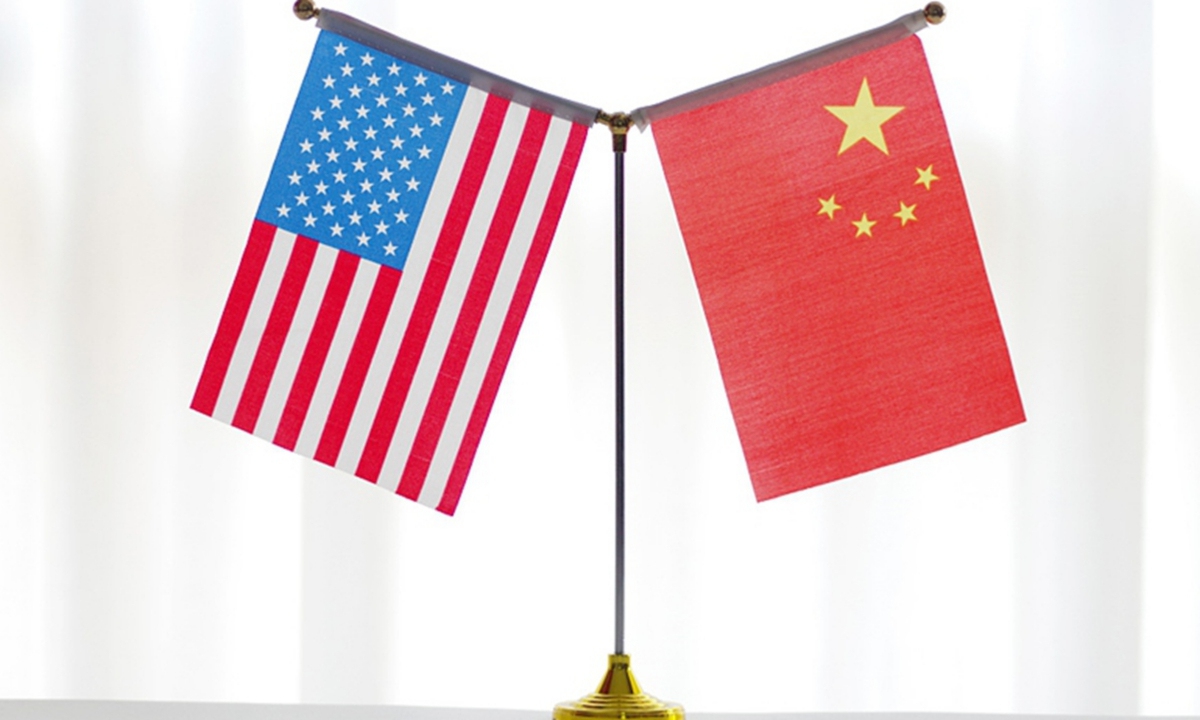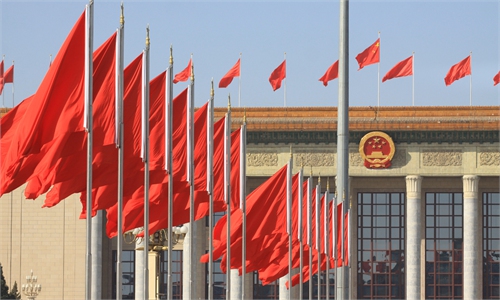
China US File Photo:CFP
As agreed between China and the United States, US Treasury Secretary Janet Yellen will visit China from July 6 to 9, China's Ministry of Finance confirmed on Monday.Yellen's visit comes just weeks after Secretary of State Antony Blinken was in Beijing which experts said has opened up a window for pragmatic engagements between the two sides. It also coincides with the efforts of the US trying to avoid a recession while containing inflation.
The US Treasury said Yellen will discuss "the importance for our countries - as the world's two largest economies - to responsibly manage our relationship, communicate directly about areas of concern, and work together to address global challenges."
In a meeting with business leaders of US-China Business Council's Board of Directors in June, Yellen recognized the importance of trade and investment with China, given deep integration between the two economies.
In her speech in April, Yellen stressed that the US seeks a healthy economic relationship with China that fosters mutually beneficial growth and innovation and expands economic opportunity for American workers and businesses. It also seeks to cooperate on urgent global challenges like climate change and debt distress.
In commenting on Yellen's upcoming visit to China, Chinese experts said Yellen may address the fiscal and financial issues between the two countries during her trip to China at the backdrop of easing tensions between the US and China.
Veteran economist Tian Yun, told the Global Times on Monday that a major objective is to persuade China to refrain from reducing its holdings of US Treasury bonds and instead increase them at the appropriate time to help the US addressing inflation issues.
As an important investor in Treasury bonds, Chinese mainland in April cut its holding of US Treasuries by $400 million to $868.9 billion, on increasing defaults risks, according to data released by the US Treasury on June 16.
According to updated information on the US Treasury website on June 16, the size of the US treasury bonds exceeded $32 trillion, reaching $32.039 trillion. If there is no foreign takeover, it will inevitably lead to increasing financial pressure on the US, experts said.
For the US side, China's holding of US Treasury bonds could have several positive effects, including reducing its inflation and assisting in balance sheet reduction, Tian said.
US domestic inflation is unlikely to fall to the Federal Reserve's two percent target until at least 2025, Federal Reserve Chairman Jerome Powell said on Wednesday.
Powell's remarks suggest the central bank's fight against inflation is far from over. Most economists think the rate increases ultimately will pull the US into at least a mildrecession.
The US may also consider lower tariffs on China, it would be beneficial for both countries economically, Tian said.
Wang Jisi, president of the Institute of International and Strategic Studies of Peking University, also noted on Monday that there are many issues that both governments and financial sectors need to address such as the falling exchange rate of the Chinese yuan compared to the US dollar and China's holding of US debt in addition to inflation.
The outcome of the negotiations depends on whether Washington can truly turn its words into actions which will be crucial in determining whether the follow-up cooperation between the two countries can be effectively implemented and continued, Tian added.



